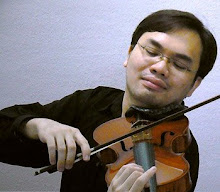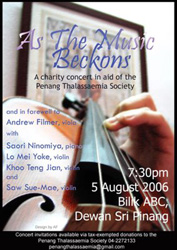Somehow, the last blog posting has invited an inclination to a rather disagreeable social activism about me, that has compelled me to, as the title suggests, shout at the wind. Yes, I realize that the wind does not respect fools – and that a colorful aunt of mine would likely prefer the term “a fart in the wind”, equally accurate by any scientific measure. I beg your indulgence, and regular programming will resume in the next posting, to ends ill or good.
Democracy has become equated to “freedom”, a dangerous connection. Especially a scary and growing segment in today’s society which holds the sound bite as a full course meal, and to which George W. fully aimed with words not exceeding two-syllables in this inaugural speech. Winston Churchill, needless to say, know much better, and he said in 1947 that “Democracy is the worse form of government, except all those other forms that have been tried from time to time.” The main problem is the obvious one: that democracy does not indeed equate to morality, and it would be perfectly democratic for a majority to put the minority to death (me being a Eurasian, you understand my concern). Of course this is done everyday, just not to the point of death, but in the national funding of various constituencies. The following are faults and remedies to that which we call a democracy; I do hope it is at least slightly interesting, which would make up for any impracticalities it presents (man, it is true, that one prefers to be irreverent than irrelevant):
1. Ignorant fools are allowed to vote. Winners always pride themselves of the majority vote, but really, how many of those who voted for them really knew what they were doing? Remedy: all voters have to sit through a quick test about the policies of the contending parties/candidates. If you don’t know about what the contenders stand for/against, you’re don’t know enough to check the box, buddy. By the time you pass the test, you will at least be able to vote knowledgably.
2. What majority? Parliaments and Congresses and Prime Ministers and Presidents don’t necessary command the majority of the votes in the country. Or, if you prefer the term, the “popular majority.” Instead, you have representation of constituencies, or in the US, the Electoral College. Which is fine, if your constitution says it’s fine, but if you get a president voted in who didn’t get the popular majority, you could still make him president, but you know, without all the perks: you should take away the nuclear arming codes, to begin with.
3. Spoilt votes mean something. Ok, I figure the majority of spoilt votes are by people who just didn’t know what the heck they were doing in a voting booth, and probably confused it with a McDonald’s takeaway. But genuine spoilt votes (i.e. those who mark an intention to spoil a vote) should be marked once for each contesting party – as a sign of no-confidence in the options presented. In the end the results will be the same, BUT the value of each vote and the relative value of the margin of victory will more representative. For example, take an election where 2 people voted for Party A and 1 person for Party B, and there were 100 spoilt votes. Instead of ignoring the spoilt votes – in which case Party A won a landslide victory of 100% more votes – the lack of confidence would be appropriately seen, in which case it was a narrow victory, with only 1 out of 103 voters, who had more confidence in Party A, less than a 1% victory.
That’s enough for the wind today, and thank you for your patience.
Subscribe to:
Post Comments (Atom)





No comments:
Post a Comment